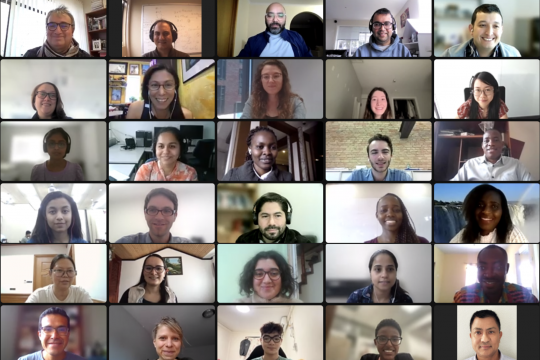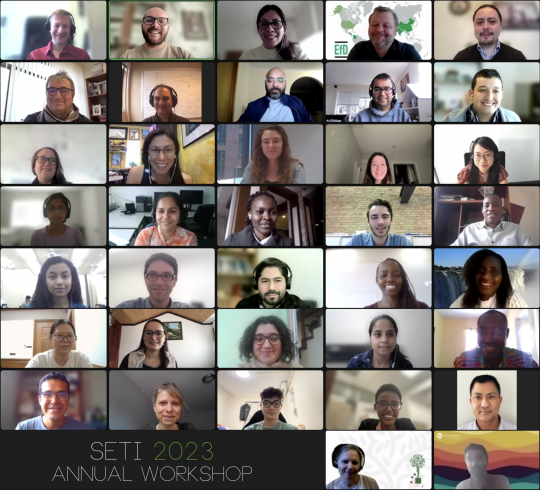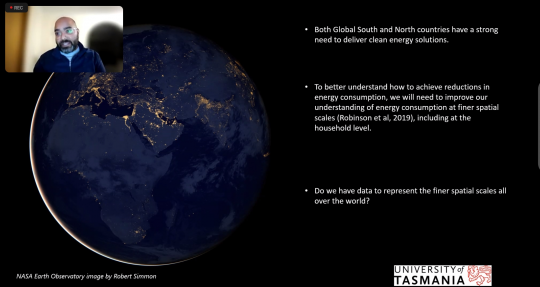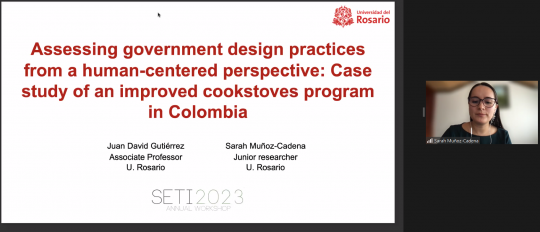80 participants from around the world met online on June 15 and 16 at The Eighth Annual Meeting of the Sustainable Energy Transitions Initiative (SETI). The event included ongoing studies and the participants discussed issues related to energy.
This two-day meeting served as a space for networking through discussions and feedback on research papers on the topics of air pollution, heating, energy poverty, energy efficiency, climate policy, and cooking. There were 21 presenters from places such as Switzerland, India, the USA, Australia, Germany, England, South Africa, Kenya, Chile, Mexico, and Colombia.
“Decolonizing” environmental economics
The first day was opened by Gunnar Köhlin, Director of the Environment for Development Initiative, followed by the leaders of SETI, Marcela Jaime and Marc Jeuland. Gunnar Köhlin commended SETI for their work and recent involvement in the Inclusive Green Economy Program.
“We are proud to have SETI as one of our collaborative programs and want to acknowledge your fantastic work. You have successfully expanded the program from Duke to involve scholars from all over the world, ‘decolonizing’ environmental economics,” said Gunnar Köhlin. He also highlighted that SETI has “brought together researchers from the Global South and provided a space that promotes research and high-quality publications.”
Marc Jeuland stressed the importance of meeting, whether face-to-face or online, and gave several invitations and reminders for future activities. Marcela Jaime talked about “being part of a community where researchers from the North and Global South congregate.” She also added that “being part of SETI has allowed us to get to know each other and to realize that we share common problems despite our diverse realities”.
Contributing to the formation of future researchers
During the second day of the workshop, the program included a flash-talk session with presentations of postgraduate students who presented their energy-related research undertaken in Colombia, the Republic of Congo, Rwanda, Mexico, and Zambia. They are currently contributing to the topics of improved cookstoves, the energy-health nexus, electricity access, household air pollution, and household electrification technology.
Moving towards evidence-based decision making
Mauricio Oyarzo, member of the SETI local team, opened the second day with a summary of what had been accomplished the day before.
“Researchers shared their findings and designs primarily focused on instruments aimed at achieving a just and inclusive energy transition” he commented.
“We also had presentations related to the design and evaluation of interventions focused on the use of sustainable cooking practices in different contexts, disparities in access to clean energy sources, and other important topics. This contributes to generating relevant scientific evidence to address the main challenges in the energy transition with special attention to the Global South,” he said.
The first parallel research session had eight researchers who presented their research in relation to the themes of energy access and sustainable cooking practices moderated by Mauricio Oyarzo and Walter Gómez (University of La Frontera, Chile) respectively. And a second parallel research session focused on energy, gender and culture, and energy and climate change, and were moderated by César Salazar (University of Bío Bío, Chile) and Marc Jeuland (Duke University, USA) respectively.
How to engage with SETI? If you want to be involved with SETI, you are welcome to subscribe to the monthly newsletter: subscribe here. You can also follow the program on social media. Twitter: twitter.com/SETIenergy; LinkedIn: Sustainable Energy Transitions Initiative; Email: SETI@udec.cl.
By Belén Pulgar



